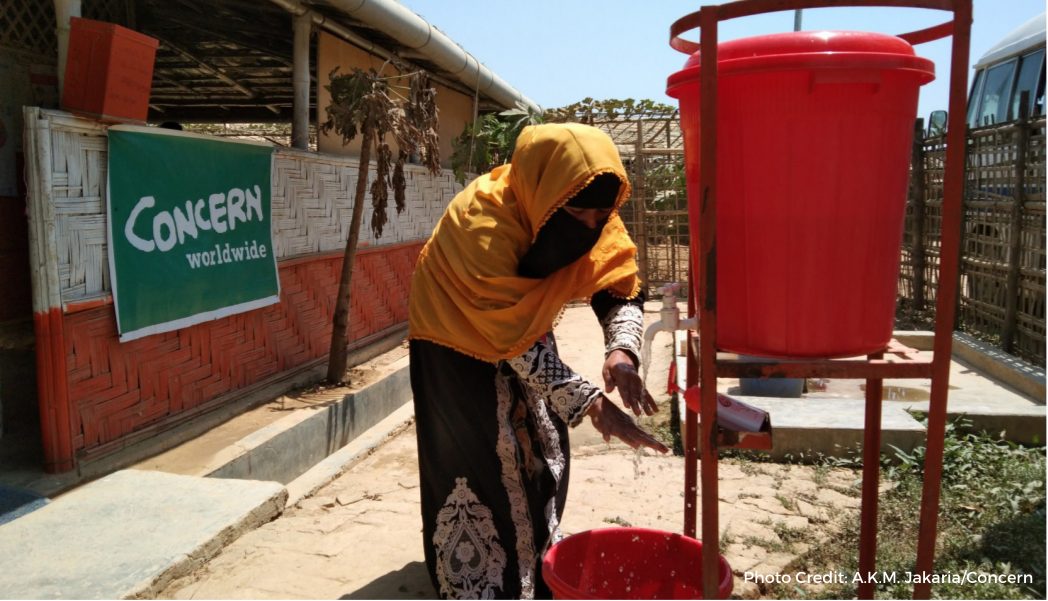COVID-19 & Nutrition Impact Series: Concern Worldwide

As countries and communities continue to contain and manage the response to the COVID-19 pandemic, we are bringing together resources from the global nutrition community to highlight the nutrition and food security challenges, adaptations, and impacts due to COVID-19. If you are interested in contributing to the COVID-19 & Nutrition Impact Series please contact us here.
Concern Worldwide is calling for a greater global response to both the health and economic impacts of COVID-19 in the developing world, amid fears that the pandemic will leave over a billion people without sufficient food.
Concern teams in 23 countries are continuing to escalate efforts to support communities and is working closely with governments to maintain consistent messaging on COVID-19 and what can be done to prevent it.
Millions of children are losing out on essential nutrition with schools closed, and many families cannot afford to feed their children as they have lost their income. Providing families with the means to feed their children must be a priority to prevent children from becoming malnourished and to protect their health. Cash assistance to urban communities with no other means of earning a living, or where no social protection system exists, must be prioritised in countries where no state social protection system exists.
Read Concern Worldwide’s policy brief – Extremely Poor People Will Go Hungry As COVID-19 Response Measures Hit
Check out Concern’s country case studies from Bangladesh and Malawi below, as well as some further resources.
Bangladesh
The participants in our data collection highlight that having no income means that people have to change what and how much they are eating. One slum dweller from Chattogram explained how “We can’t light our stove for several days. We are eating bread flour. As there’s no family income, we’re prioritising flour because it’s cheaper. At present it is 30 taka per kg of flour and 50 taka per kg rice”.
The lack of expectation of assistance from the poorest, alongside their non-existent voice and representation is striking across the responses, with an acceptance they are being overlooked because they are the poorest.
Our policy asks include ensuring that families have the means to feed their children to prevent them from becoming malnourished and to protect their health. The cost of doing nothing will be seen in a rise in malnutrition, rolling back recent progress globally. Cash assistance to urban communities with no other means of earning a living must be prioritised; in Bangladesh, cash transfers provide a viable option as the supply market for food, and basic necessities is still functioning.
More details here.
Malawi
We asked about people’s access to food and whether their consumption had changed, with the answers varying considerably based on location. In Lilongwe, everybody highlighted how their eating habits have changed (including reducing the number of meals, and the amounts included in them). This is driven on one hand by reductions in their own ability to earn an income, and on the other by increases in prices in the markets.
The situation is a little more mixed in Nsanje, while all respondents interviewed in the first round of data collection stated that they have had to reduce the amount of food they eat, some highlighted in the second round how things were improving with a fall in the price of maize in the post-harvest period, while others were accessing more vegetables after the harvest. Our respondents in Nsanje do still face challenges however in terms of being able to vary their consumption where they depend on the market, in particular to eat rice, meat and fish.
More details here.
Additional Resources
Concern Worldwide policy brief – The Extreme Poor Cannot be Left to Fight Covid-19 Alone
Concern Worldwide technical guidance brief – Adapting Community-based Management of Acute Malnutrition in the context of COVID-19
The primary focus of this guide is the management of the outpatient component of Community-based Management of Acute Malnutrition (CMAM). It focuses on health facility level decisions and planning and has a stronger focus on severe acute malnutrition (SAM). The recommendations must be adapted to each context. This guide can also help to build the capacity of the Ministry of Health (MoH) staff and/or to help them develop guidelines of their own if they do not yet exist.
Concern Worldwide research papers – The impact of Covid-19 on the poorest
Concern is conducting research in our programme countries to ascertain the impacts the Covid-19 pandemic is having on the world’s poorest people. A series of research reports from Bangladesh and Malawi.
